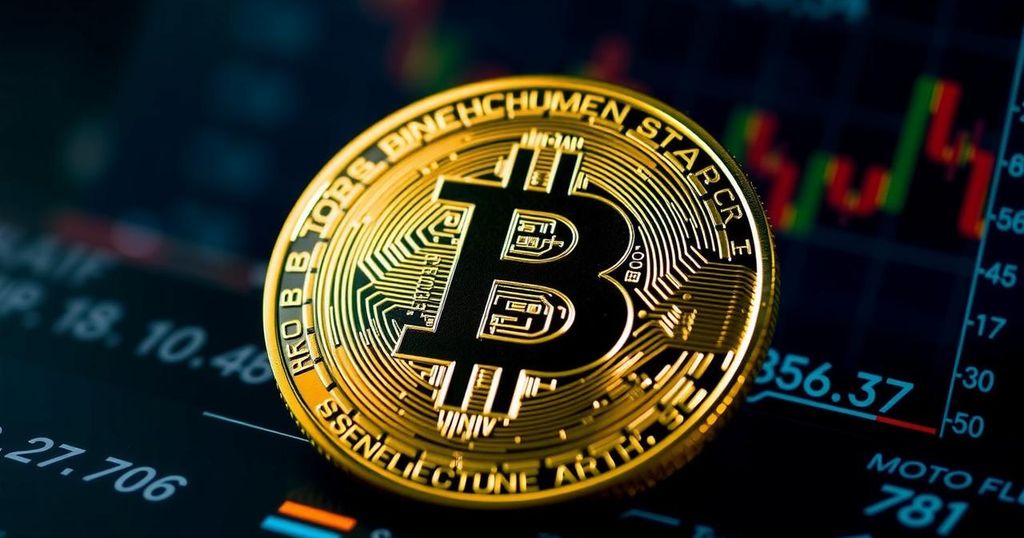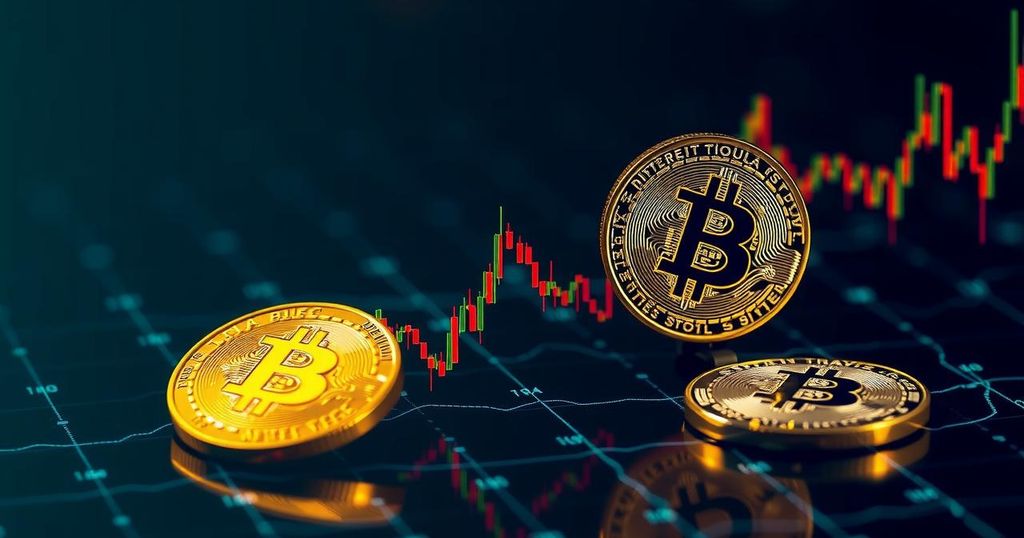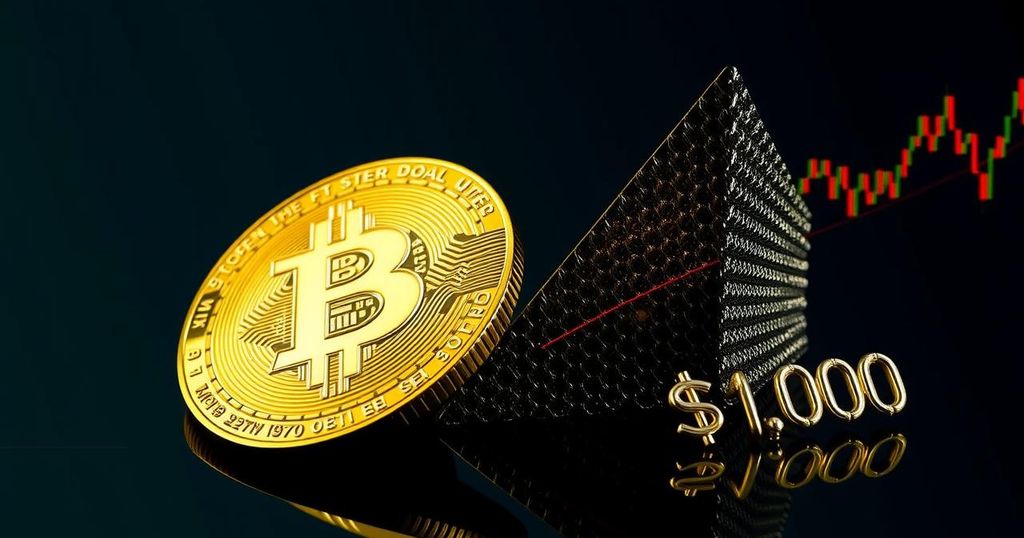Bitcoin Surges to Three-Month High Amidst Trump Election Prospects
Bitcoin reached a three-month high as markets react to increasing odds of Donald Trump winning the upcoming U.S. presidential election, which is boosting the dollar. Trading strategies are shifting, focusing on potential tariff implications and real interest rates, particularly against major currencies like the euro and yen.
In early Asian trading on Monday, Bitcoin surged to a three-month high, reaching $69,400, with an 18% increase since October 10. This rise is attributed to the favorable outlook for former President Donald Trump’s prospects in the upcoming U.S. presidential election on November 5. Election polls indicate that Trump’s likelihood of winning is increasing, which has subsequently boosted the value of the dollar. Market analysts posit that Trump’s anticipated tariff and tax policies could maintain high U.S. interest rates, adversely affecting the currencies of trading partners. Last week, currency movements in major markets were influenced by a dovish rate cut from the European Central Bank and robust U.S. economic data that delayed expectations for a decrease in U.S. interest rates, particularly if Trump emerges victorious. The dollar index, which measures the greenback against other major currencies, was recorded at 103.45, following a 0.3% decline on Friday amidst a broadened risk appetite following China’s stimulus details, though it posted a weekly gain of 0.55%. This week, the focus in the markets is expected to shift to corporate earnings and looming election risks, according to Chris Weston of Pepperstone, who highlighted the importance of determining the right time for traders to engage in election-related trading strategies. Weston noted, “With just 15 days to go until the U.S. election, traders need to decide if now is the right time to start placing election trades with greater conviction.” He advised that increased dollar positioning against the euro, Swiss franc, and Mexican peso would be a prudent tactic to mitigate potential tariff risks. Additionally, Brad Bechtel from Jefferies emphasized that surging real interest rates would further bolster the dollar, particularly against these currencies. In the last week, the yen depreciated by 0.3%, while the euro and Mexican peso fell by 0.6% and 3%, respectively. The dollar index, on the other hand, rose by 0.55%. The euro has suffered a decline of over 3% in three weeks and currently hovers near a 2.5-month low, having breached its 200-day moving average.
The current economic climate is significantly affected by the impending U.S. presidential election, especially with the increasing possibility of Donald Trump returning to the White House. Investors are keenly observing who may win the election, leading to volatility in financial markets, particularly in currency trading. Trump’s previous administration has been associated with policies that often favored a stronger dollar, primarily through tariff strategies that impact international trade and currency valuation.
The ongoing market dynamics suggest that the lead-up to the U.S. presidential election is heavily influencing financial markets, with Bitcoin values rising alongside the strengthening dollar. The prospects of Donald Trump’s election victory are reshaping traders’ strategies, primarily through capitalizing on currency weaknesses against the dollar, particularly those of the euro and Mexican peso. As the election approaches, market participants remain watchful for indicators that could establish more definitive trading positions.
Original Source: www.cnbc.com








Post Comment